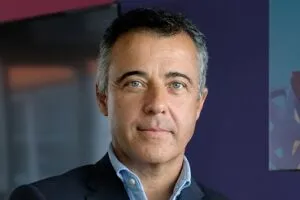Over the course of its 350-year history, Merck KGaA has expanded from its base in Darmstadt, Germany to establish a strong presence in various markets across the globe. Last year, PharmaBoardroom spoke with Merck affiliate leaders in multiple geographies, uncovering their concerns and priorities as the firm pushed to recover from a slump in sales and return to organic growth.
China: Supporting Reproductive Health
Since 1933, Merck has built a robust and enduring presence in China, encompassing not only a commercial organization but also manufacturing and R&D. “Merck has a deep and enduring history in China. Over this time, Merck has built a comprehensive footprint that spans the entire value chain of the pharmaceutical industry,” says Vivian Zhang, managing director and general manager at Merck China Healthcare.
 According to Zhang, the conglomerate’s presence in China is a strategic priority. “What truly sets Merck apart is its unwavering long-term commitment to China. This commitment is not new—it has been consistent through decades of leadership and the many challenges faced, including economic fluctuations and geopolitical tensions.”
According to Zhang, the conglomerate’s presence in China is a strategic priority. “What truly sets Merck apart is its unwavering long-term commitment to China. This commitment is not new—it has been consistent through decades of leadership and the many challenges faced, including economic fluctuations and geopolitical tensions.”
One key focus area for Merck in China is reproductive health, supporting efforts to tackle the country’s negative population growth. “The government has recognized the urgency of this issue and has implemented measures aiming at easing the financial burden on young couples,” she comments. “From Merck’s perspective, we see it as our responsibility to support these efforts not only by providing leading reproductive medicines that can directly impact birth rates, but also by addressing broader societal needs.”
Merck is actively engaged in public education campaigns to raise awareness about fertility. “Through partnerships with the government, the National Health Commission, associations, and medical professionals, we are working to bridge this knowledge gap and empower informed decision-making.” Additionally, the company is involved in policy advocacy to improve access. “This includes advocating for expanded reimbursement options, multi-layer insurance coverage, and better geographic distribution of fertility centres—especially in underserved areas like northern and inland regions,” says Zhang.
Switzerland: Tackling Delays and Promoting Digitalisation
With a 95-year history in Switzerland, Merck operates both local and global teams, boasting six development and production sites and investing more than CHF 1 billion in the past decade. “A key part of my role as General Manager is to advocate for the future of healthcare in Switzerland, ensuring that we contribute to making the system more sustainable and innovative,” says Florian Schick, president of Merck Switzerland.
 Schick highlights the urgent need to modernize Switzerland’s regulatory and reimbursement systems. “We are experiencing delays, particularly when compared to other regulatory authorities. In critical areas like oncology, even a small delay can mean patients are left waiting for life-saving treatments. This is not just an administrative issue—it has serious implications for patient outcomes.”
Schick highlights the urgent need to modernize Switzerland’s regulatory and reimbursement systems. “We are experiencing delays, particularly when compared to other regulatory authorities. In critical areas like oncology, even a small delay can mean patients are left waiting for life-saving treatments. This is not just an administrative issue—it has serious implications for patient outcomes.”
He emphasizes the importance of ensuring patients access new treatments immediately after regulatory approval. “This approach would ensure that Swiss patients are not left waiting and can benefit from cutting-edge innovations as soon as they become available. By addressing these systemic delays, we can ensure that the Swiss healthcare system remains at the forefront of delivering timely, advanced care to patients.”
Another key area where Schick believes Switzerland is losing momentum is digitalisation. “Switzerland faces significant challenges in healthcare digitalisation, but there are encouraging signs of progress,” he notes. “With the right digital backbone, we could deliver higher-quality care at reduced costs, improving both patient outcomes and system efficiency,” says Schick, pointing to Merck’s focus on digitalisation and the integration of artificial intelligence (AI).
Hong Kong: Confronting a Talent Crunch
Historically, a strategic gateway to China, Hong Kong remains an essential market for Merck, with the majority of its key products already launched. “Hong Kong’s strategic position, excellent infrastructure, and high-quality healthcare system make it an ideal location for our operations,” claims Tony Cheng, managing director and GM Hong Kong & Macau, Merck Healthcare.
 One notable challenge Cheng has encountered is a significant shortage of manpower, due in part to a diminishing pool of new talent entering the pharmaceutical sector and the growing competition from Chinese biotech companies setting up subsidiaries in Hong Kong. “Addressing this talent crunch is a top priority,” Cheng asserts. “Our goal is to provide a compelling reason for individuals to stay onboard, offering them a clear understanding of our mission and the opportunities for growth and impact within our organization.”
One notable challenge Cheng has encountered is a significant shortage of manpower, due in part to a diminishing pool of new talent entering the pharmaceutical sector and the growing competition from Chinese biotech companies setting up subsidiaries in Hong Kong. “Addressing this talent crunch is a top priority,” Cheng asserts. “Our goal is to provide a compelling reason for individuals to stay onboard, offering them a clear understanding of our mission and the opportunities for growth and impact within our organization.”
In addition to addressing the talent crunch, Cheng sees partnerships as a critical focus area. “The market is becoming increasingly competitive, and traditional approaches may not suffice. Establishing partnerships with key stakeholders that benefit society as a whole is essential,” he notes. “These partnerships extend beyond healthcare-related entities; we are collaborating with diverse organizations like online insurance companies, start-ups focused on mental health, and educational institutes.”
Merck has partnered with the Hong Kong Science Park (HKSTP) and is actively involved in co-incubation programmes, supporting local start-ups. “We help start-ups by acting as super connectors, linking them with various stakeholders to ensure their products are suitable for the Hong Kong market. If a product and company show promise, we also introduce them to M-Ventures, Merck’s venture capital arm,” Cheng explains.
Portugal: Encouraging Oncology Access, Embracing Regulatory Advances
With a diverse portfolio spanning oncology, immunology, fertility, and multiple sclerosis, Merck Portugal maintains its position as a country-specific affiliate. “The decision not to consolidate operations in a central location like Spain reflects our belief in maintaining a robust local footprint in each market. This approach aligns with our commitment to fostering local partnerships,” says managing director Pedro Moura.
 Portugal’s healthcare market is not without its challenges, particularly underfunding. “The healthcare expenditure in Portugal has been on the rise, but the investment in pharmaceuticals, despite recent recovery, has fallen significantly compared to peers like France, Italy, and Spain,” Moura notes.
Portugal’s healthcare market is not without its challenges, particularly underfunding. “The healthcare expenditure in Portugal has been on the rise, but the investment in pharmaceuticals, despite recent recovery, has fallen significantly compared to peers like France, Italy, and Spain,” Moura notes.
Oncology presents unique hurdles. “The landscape of oncology in Portugal presents its own set of challenges, particularly when it comes to first-time filings, pricing negotiations, and patient enrolments,” Moura affirms. Broader access hurdles persist, with just 44 percent of EU-approved drugs making it to the local market.
Progress in access has been made through a regulatory development that allows reimbursement requests and patient access programmes to proceed simultaneously. “This innovative approach ensures that, during the roughly nine-month evaluation period, if there is no response, a guarantee is secured to supply the product,” Moura explains. “This ensures earlier access in most cases and highlights the importance of competitive data and the absence of viable alternatives.”
India: Going Beyond Generics
Among Merck’s largest affiliates with over 4,000 employees, Merck India’s operations encompass manufacturing and cutting-edge centres of excellence. However, the majority of its value in the market stems from branded generics.
 For Pratima Reddy, GM of Merck Healthcare India, advancing the firm’s innovative portfolio is a top priority. “Our focus is on expanding access to our innovative portfolio in India, prioritizing maximum benefits for a broad patient base through strategic access approaches, payer engagement, and a profound understanding of the evolving market,” Reddy states.
For Pratima Reddy, GM of Merck Healthcare India, advancing the firm’s innovative portfolio is a top priority. “Our focus is on expanding access to our innovative portfolio in India, prioritizing maximum benefits for a broad patient base through strategic access approaches, payer engagement, and a profound understanding of the evolving market,” Reddy states.
In a generics-dominated market, Merck India employs a tailored approach, promoting a curated selection of innovative products and access-related initiatives. “While the innovative portfolio encounters higher price barriers, the emphasis is on differentiation and driving patient access initiatives,” Reddy explains.
Merck is unlocking the potential within its cardiometabolic portfolio, which serves as a foundation for its innovative franchises. “Reimbursement contributes approximately 30 percent to oncology sales in India, underscoring its strategic importance,” she notes. For the self-pay segment, which accounts for 70 percent of oncology, patient access programmes are vital. “These programmes balance costs and free treatments, directly aiding patients based on physician recommendations,” Reddy adds.
India’s push for innovation could bolster these efforts. “India has made commendable progress in intellectual property regulations. However, the government faces the dual challenge of ensuring healthcare access for the population while fostering pharmaceutical innovation,” Reddy concludes.



